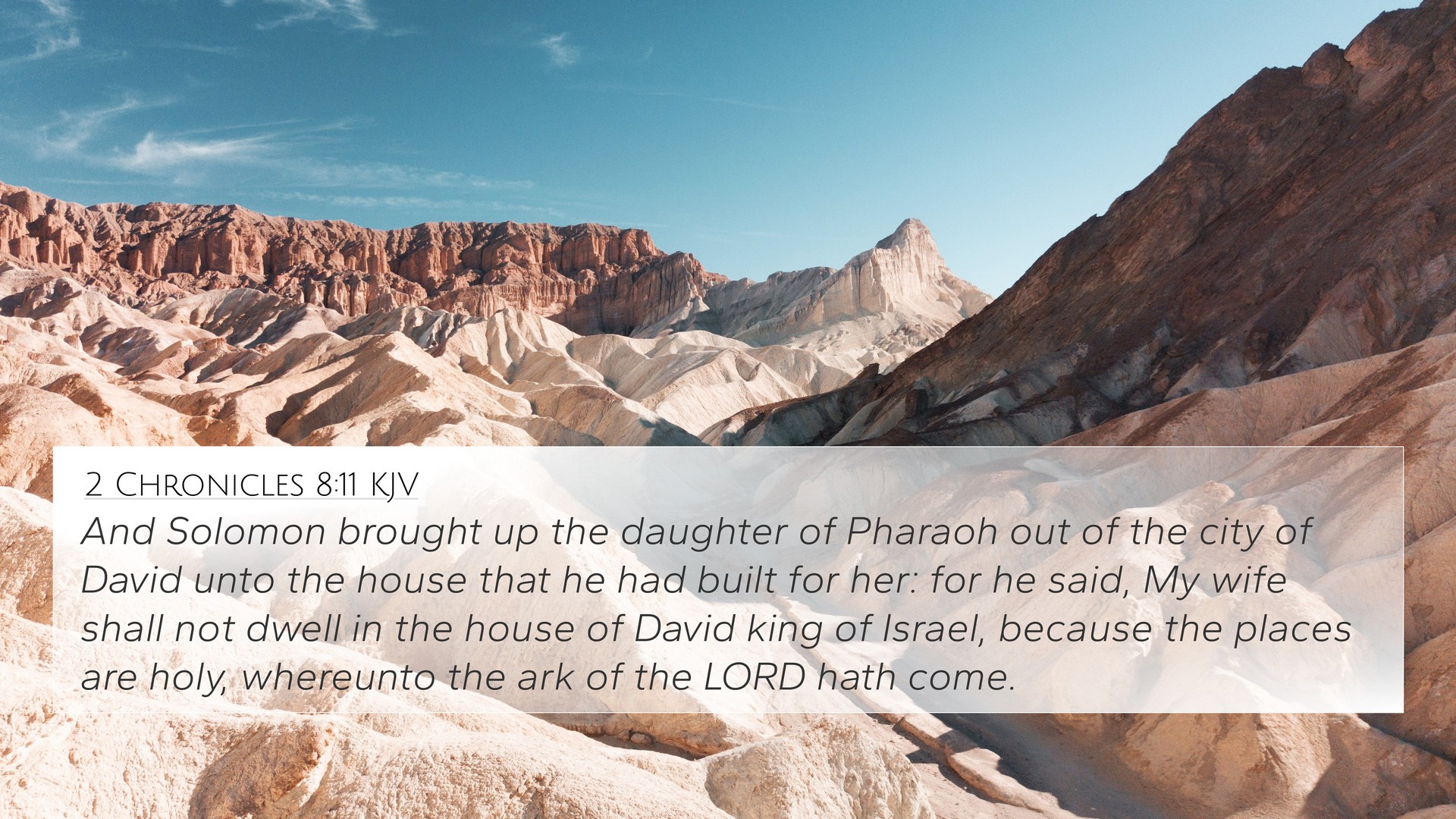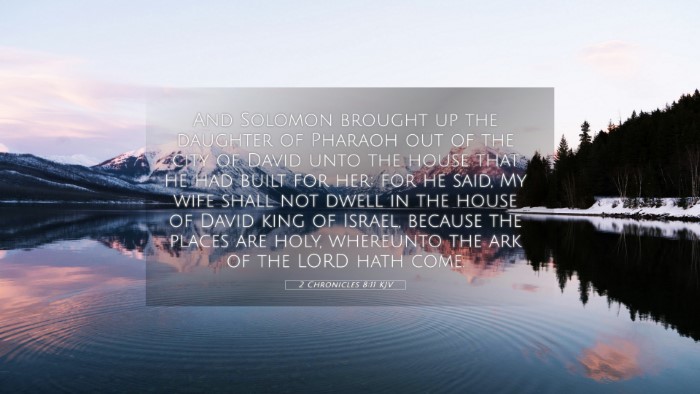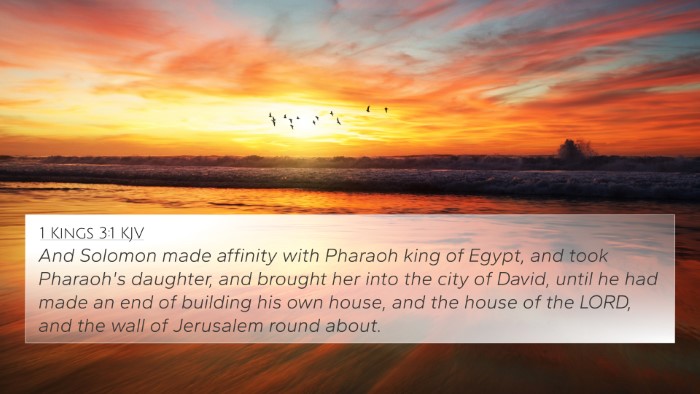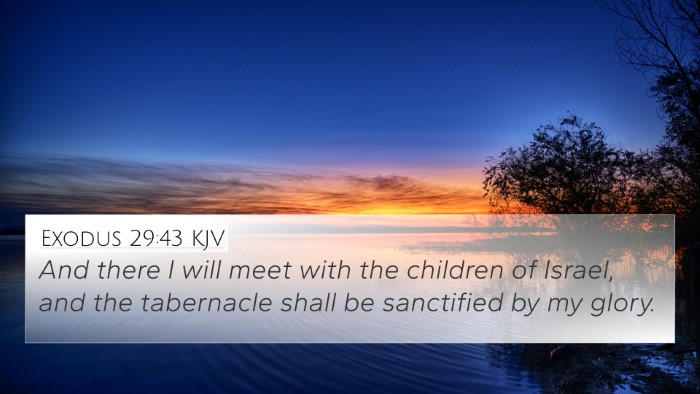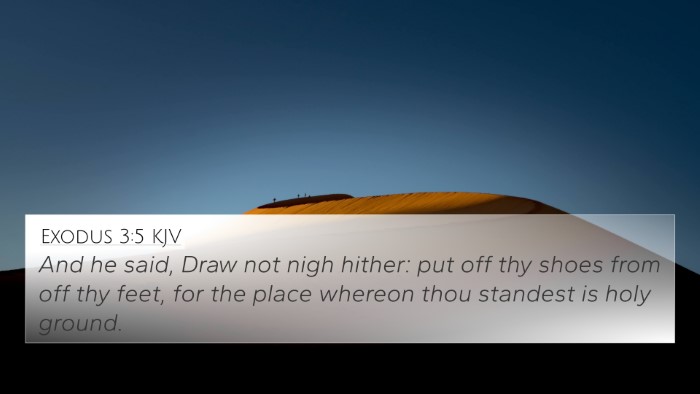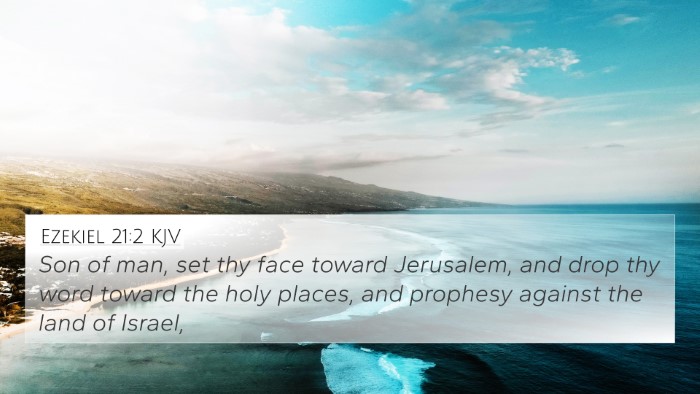Understanding 2 Chronicles 8:11
Verse: 2 Chronicles 8:11 - "And Solomon brought up the daughter of Pharaoh out of the city of David unto the house that he had built for her: for he said, My wife shall not dwell in the city of David, because the places are holy, whereunto the ark of the Lord hath come."
Interpretative Summary
This verse describes how King Solomon took the daughter of Pharaoh and brought her to a new residence that he constructed for her, outside of the holy city of David. The reason for this decision, as stated by Solomon, emphasizes the sanctity of the city, where the ark of the covenant resides.
Key Insights from Commentaries
-
Matthew Henry:
Henry notes that Solomon's action of relocating Pharaoh's daughter reflects an understanding of the city's holiness and his desire to honor that sanctity. He suggests that Solomon aimed to distinguish between the secular and the sacred, highlighting his commitment to the worship of God.
-
Albert Barnes:
Barnes emphasizes the strategic political alliance formed through Solomon marrying Pharaoh's daughter. He discusses how this marriage, while beneficial politically, necessitated maintaining the holiness of the Israelites' worship and the city itself.
-
Adam Clarke:
Clarke elaborates on the significance of Solomon’s decision, interpreting it as an acknowledgment of the divine presence in Jerusalem. This choice reflects not only practical governance but also a respectful distance from pagan practices that might infringe upon the sacredness of the Israelite worship space.
Bible Cross-References
In studying 2 Chronicles 8:11, it is helpful to consider other verses that provide further context and understanding. Here are key cross-references:
- Exodus 3:5 - God commands Moses to take off his sandals at the holy place, symbolizing the reverence due to sacred spaces.
- 1 Kings 3:1 - Solomon's marriage to Pharaoh’s daughter is mentioned, situating this verse within a broader narrative of political alliances.
- 2 Samuel 6:2 - This verse discusses bringing the ark to Israel, emphasizing the importance of God's presence in the city.
- 1 Kings 6:27 - The construction of the Temple, which reflects Solomon’s dedication to maintaining a place of worship.
- 2 Chronicles 7:15 - This highlights God’s attention to the place established for worship, connecting it to Solomon's reverence for holy and secular spaces.
- Deuteronomy 12:5 - The instruction to seek a place where the Lord chooses to establish His name speaks to the sacredness of the city Solomon respected.
- Psalm 132:13-14 - The Lord has chosen Zion, demonstrating the choice of Jerusalem as a sacred dwelling place.
Connections Between Bible Verses
Exploring connections between 2 Chronicles 8:11 and the listed cross-references, we find thematic parallels in the pursuit of purity, reverence for God’s dwelling, and the complexities of political marriages in biblical narratives.
Linking Biblical Texts for Deeper Insight
The interlinking of these verses illustrates the ongoing dialogue within Scripture about maintaining the sanctity of places designated for worship, as well as themes of divine presence and the importance of upholding sacredness in personal and communal spaces.
Tools for Bible Cross-Referencing
Utilizing a bible concordance or a bible cross-reference guide can enhance understanding of connections between verses. These tools allow for a systematic approach to discovering thematic Bible verse connections and enhance bible cross-reference study.
Comparative Bible Verse Analysis
Comparative studies of related verses can reveal deeper meanings and assist in interpreting biblical themes. Examining how Solomon's actions relate to Old Testament laws and New Testament teachings provides a richer understanding of the Bible's unified message.
Conclusion
2 Chronicles 8:11 serves as a pivotal verse demonstrating Solomon’s respect for the holiness of God's dwelling, alongside his practical governance. By engaging in cross-referenced themes in the Bible, believers can gain insights into the significance of maintaining holiness in their lives and communities.
